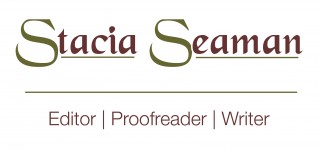About a year ago, Amazon acquired BookSurge. BookSurge offers self-publishing and POD services (the self-publishing extras, such as editing and cover design, are not cheap, either).
Now the word comes from various sources that Amazon has decided to cut into the huge POD market share held by Lightning Source (LSI).
Basically, what’s going on is this: POD publishers who use LSI as their primary printer are being told they need to switch to BookSurge if they want to be listed and sold directly through Amazon (i.e., have the gold “Add to Shopping Cart” button and qualify for free shipping, etc.). Those who choose not to go this route will still be available through Amazon through the Amazon marketplace and third-party vendors.
This is a big deal for several reasons. First, like it or not, Amazon has a huge market share when it comes to book sales. Books that are self-published or published by small POD presses are already fighting an uphill battle, and if they’re not available directly through Amazon, that’s likely going to have an effect on sales.
Second, LSI is a subsidiary of Ingram. Ingram Book Group is a major wholesaler, and most self-publishers, POD publishers, and small presses rely on these wholesalers because they are unable to afford the services of a dedicated distributor. By listing their books in the Ingram database, these publishers make their books available to a wide audience.
BookSurge does not list its titles with Ingram. It does list them with Baker & Taylor. What this means for the independent and/or POD publishers is that if they want to maintain their ability to sell books directly through Amazon, they would have to print their books through both LSI (for books sold through Ingram as a wholesaler, say at Barnes and Noble) and BookSurge (for books sold through Baker & Taylor or Amazon).
This means two sets of formatting specifications, two setup fees, two vendors, etc., etc., not to mention two different pricing structures. This could have a major impact on smaller presses, who might have neither the time nor the resources to set this up for current and future titles, let alone backlist titles.
The folks at Lulu are aware of the situation but have yet to make an official comment. Current discussion on their forums is focusing on whether Lulu would have to create a whole new set of templates to meet BookSurge specs, which apparently are more restrictive than current Lulu specs (meaning BookSurge might not even have the capability to print all Lulu titles).
PublishAmerica, which in my opinion is worse than typing out a manuscript by hand and photocopying it in your school basement, has this to say about the situation. PublishAmerica’s books are no longer available directly through Amazon (and by extension the online stores for Borders and Waldenbooks, which use the Amazon listings) although they are still available through Barnes & Noble.
Now, as it happens, Barnes & Noble is a partner of, and possible part owner of, iUniverse, so who knows what their next move will be or if they will refuse to sell books printed by BookSurge.
Right now there’s a lot of speculation and not a lot of concrete information. But I think it’s yet another factor to keep in mind for those who are considering the POD and/or self-publishing route.
